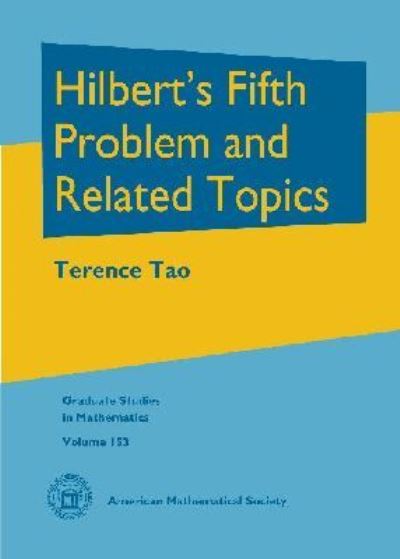
Winner of the 2015 Prose Award for Best Mathematics Book!
In the fifth of his famous list of 23 problems, Hilbert asked if every topological group which was locally Euclidean was in fact a Lie group. Through the work of Gleason, Montgomery-Zippin, Yamabe, and others, this question was solved affirmatively; more generally, a satisfactory description of the (mesoscopic) structure of locally compact groups was established. Subsequently, this structure theory was used to prove Gromov's theorem on groups of polynomial growth, and more recently in the work of Hrushovski, Breuillard, Green, and the author on the structure of approximate groups.
In this graduate text, all of this material is presented in a unified manner, starting with the analytic structural theory of real Lie groups and Lie algebras (emphasising the role of one-parameter groups and the Baker-Campbell-Hausdorff formula), then presenting a proof of the Gleason-Yamabe structure theorem for locally compact groups (emphasising the role of Gleason metrics), from which the solution to Hilbert's fifth problem follows as a corollary. After reviewing some model-theoretic preliminaries (most notably the theory of ultraproducts), the combinatorial applications of the Gleason-Yamabe theorem to approximate groups and groups of polynomial growth are then given. A large number of relevant exercises and other supplementary material are also provided.
| ISBN: | 9781470415648 |
| Publication date: | 30th July 2014 |
| Author: | Terence Tao |
| Publisher: | American Mathematical Society |
| Format: | Hardback |
| Pagination: | 338 pages |
| Series: | Graduate Studies in Mathematics |
| Genres: |
Algebraic geometry Algebra |